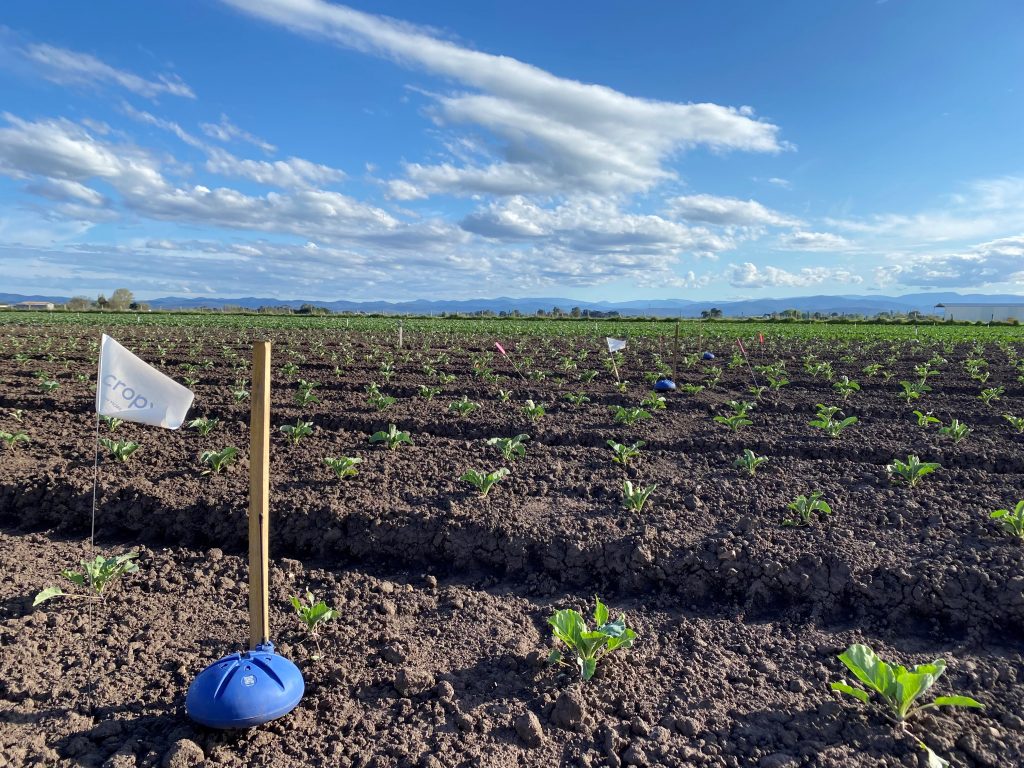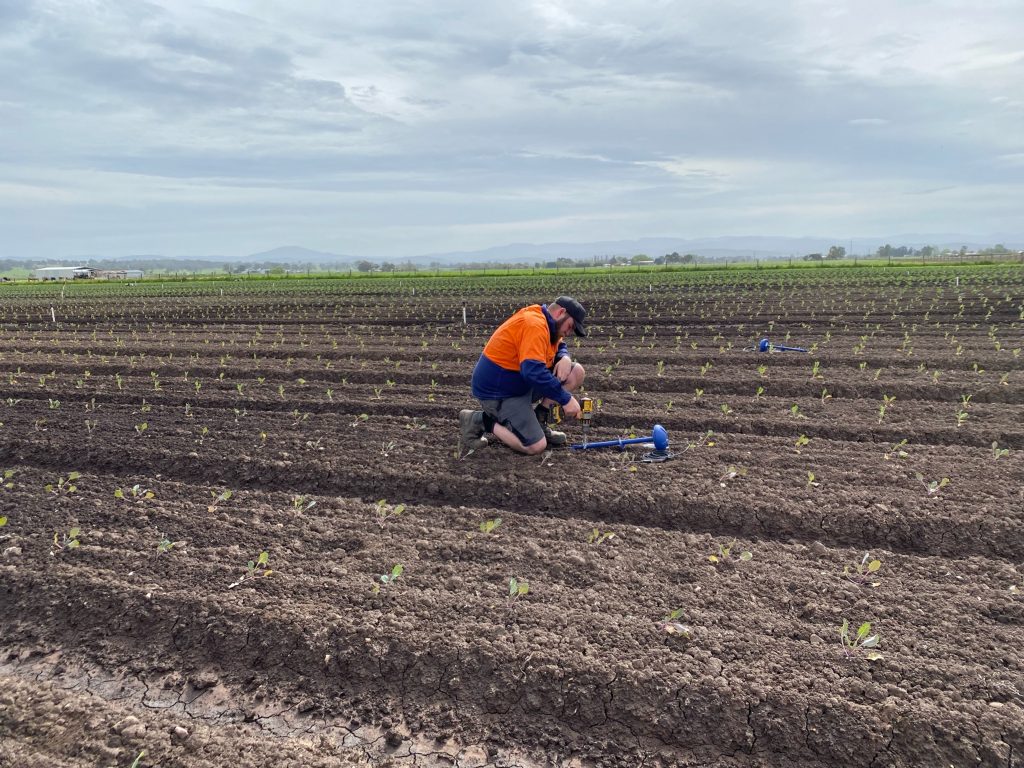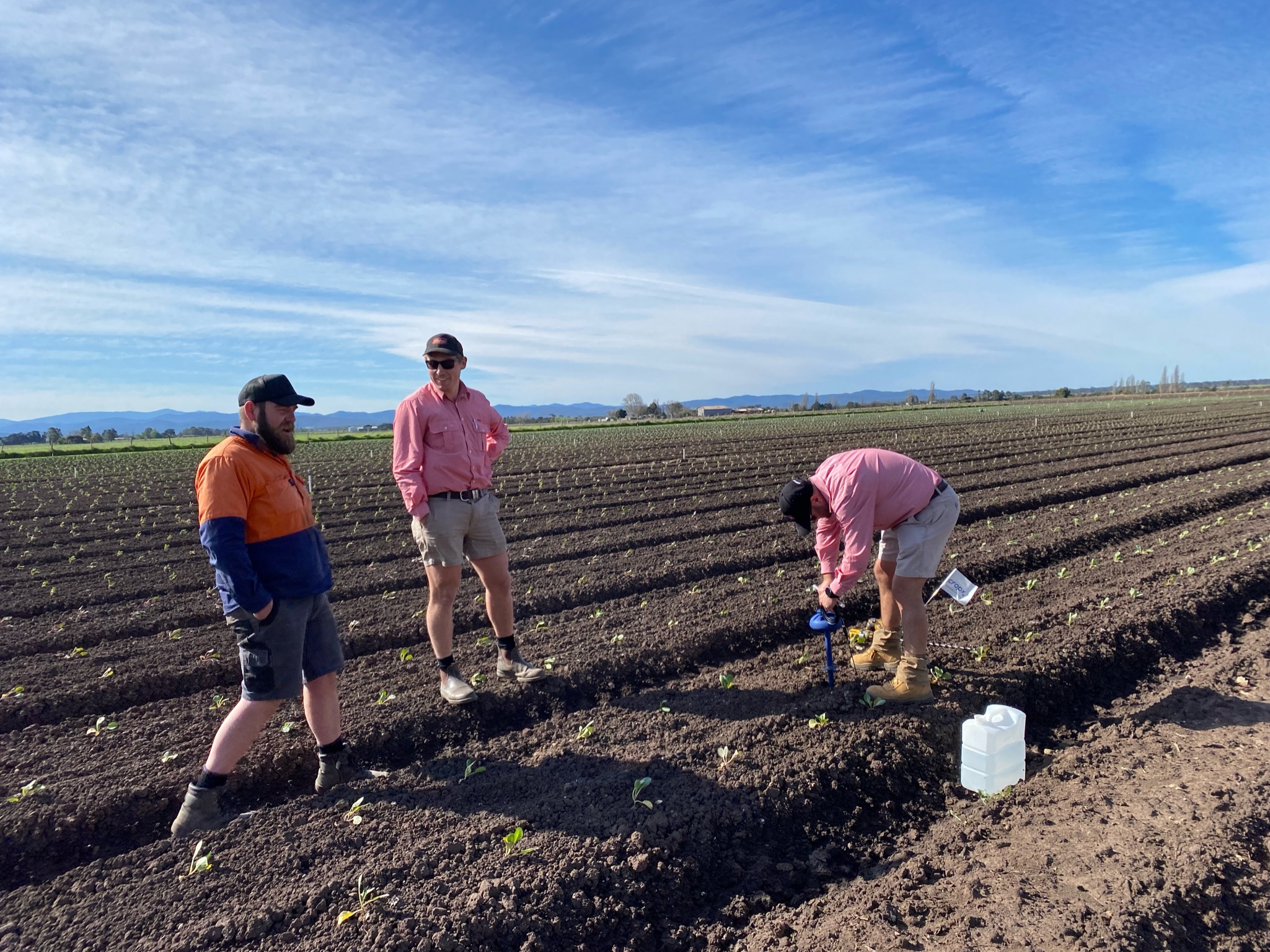Intensive soil moisture monitoring (VegNET Gippsland)
A group of growers in Gippsland have identified a need to better demonstrate their efforts to minimise the impact of the industry on the surrounding environment.
Earlier this year, Food & Fibre Gippsland was successful in a bid for funding from the Commonwealth Government’s Future Drought Fund for a demonstration site of soil moisture sensors. National EnviroVeg Coordinator Danielle Park was a driving force behind the successful funding application, with regional EnviroVeg data being integrated as part of the evaluation process.
The Growing Gippsland’s Drought Resilience with Technology and Better Soil project aims to build drought resilience among Gippsland’s vegetable producers, and reduce the risk of damaging nutrients and sediment entering the Gippsland Lakes.
Led by VegNET Gippsland, the project supports the Gippsland Regional Extension Strategy developed in 2020. The project’s Reference Group includes representatives from Agriculture Victoria, the West Gippsland Catchment Management Authority and Elders agronomist, Noel Jansz.
With the help of Farm Manager Walter Chadwick, Tripod Farmers is hosting the demonstration on its Boisdale property, located in the Macalister Irrigation District on the banks of the Avon River.
The chosen trial site uses fixed-spray irrigation and is often subject to crosswinds, which cause uneven irrigation across the bays.
The project has purchased 20 soil moisture monitors, which will provide the grower with greater awareness of the impact that these crosswinds have and the resulting effectiveness of their irrigation practices.
Outcomes that will be shared across the industry may include identification of a wind threshold recommended for optimal irrigation using this system, as well as informing future planning of fixed-spray irrigation.
10 CropX sensors were installed in September into a cabbage crop at Tripod Farms, with a similar layout to the trial site that is acting as a control site.
This data is withheld from Walter, therefore capturing the impacts of ‘business as usual’ irrigation practice. Last week, planting was finished on the trial site and 10 additional CropX sensors were installed.

The project also draws on additional sets of data and information to get a comprehensive understanding of the impact of irrigation practices on the site.
EM38 and grid soil mapping was conducted by Precision Agriculture at the site, and regular analysis of weather records from an on-farm weather station as well as a nearby Department of Primary Industries (DPI) weather station will be cross-referenced with the soil moisture data.

A webinar was delivered in October that provided an overview of the project, the environmental context in which it is being implemented, and other programs and services available to the industry to support better irrigation practice.
The project will wrap up at the conclusion of the peak growing season in April 2022, with a field visit and publication of a case study.
And keep an eye out for interesting observations from the site over the next few months!
This program is supported by Food & Fibre Gippsland through funding from the Australian Government’s Future Drought Fund.

